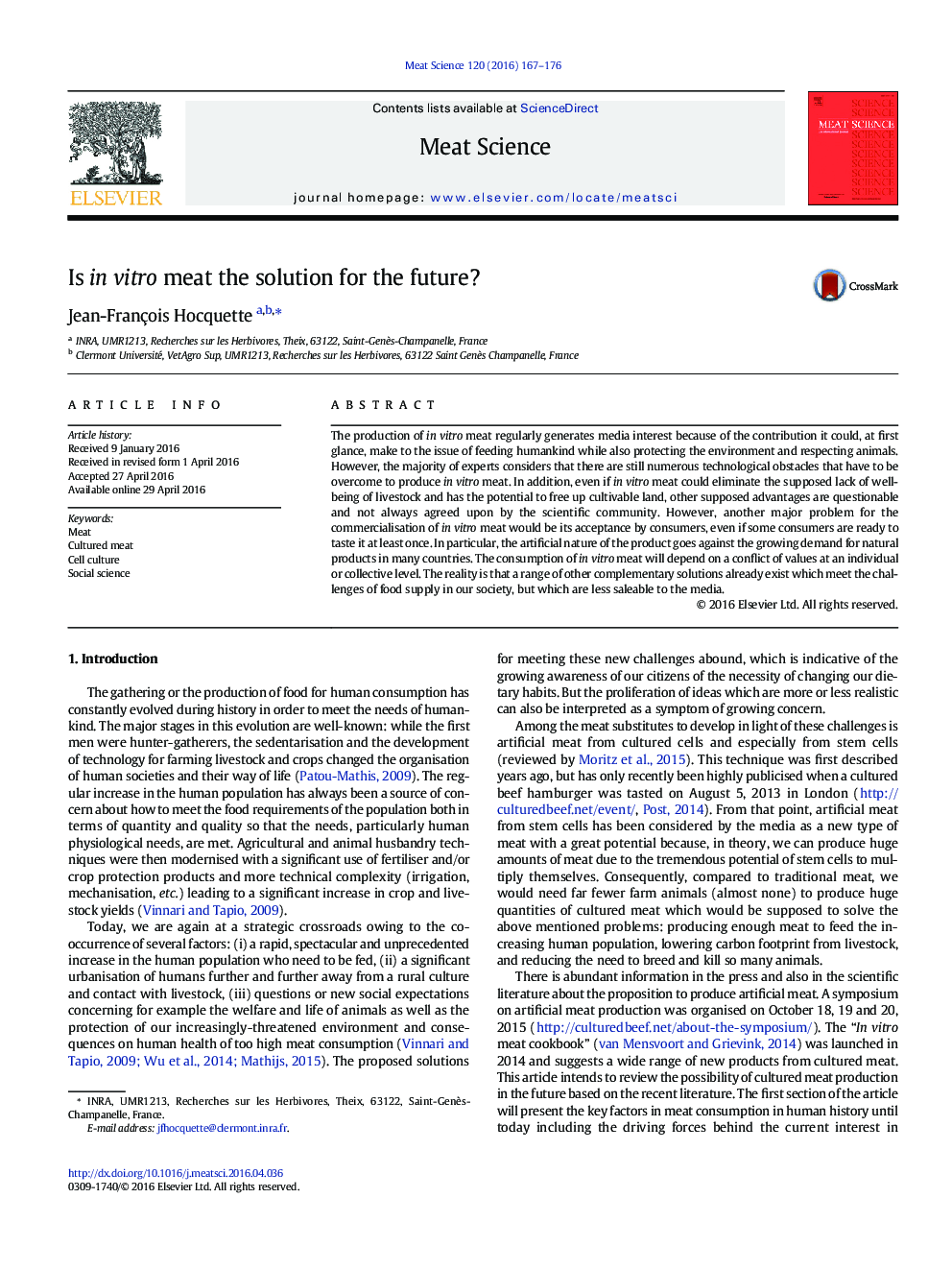| Article ID | Journal | Published Year | Pages | File Type |
|---|---|---|---|---|
| 2449323 | Meat Science | 2016 | 10 Pages |
•The production of in vitro meat regularly generates media interest.•Its potential benefits are questionable and not agreed upon by the scientific community.•There are still numerous technological obstacles for commercialisation of in vitro meat.•Another major problem would be its acceptance by consumers.•Other solutions already exist which meet the challenges of food supply in our society.
The production of in vitro meat regularly generates media interest because of the contribution it could, at first glance, make to the issue of feeding humankind while also protecting the environment and respecting animals. However, the majority of experts considers that there are still numerous technological obstacles that have to be overcome to produce in vitro meat. In addition, even if in vitro meat could eliminate the supposed lack of well-being of livestock and has the potential to free up cultivable land, other supposed advantages are questionable and not always agreed upon by the scientific community. However, another major problem for the commercialisation of in vitro meat would be its acceptance by consumers, even if some consumers are ready to taste it at least once. In particular, the artificial nature of the product goes against the growing demand for natural products in many countries. The consumption of in vitro meat will depend on a conflict of values at an individual or collective level. The reality is that a range of other complementary solutions already exist which meet the challenges of food supply in our society, but which are less saleable to the media.
